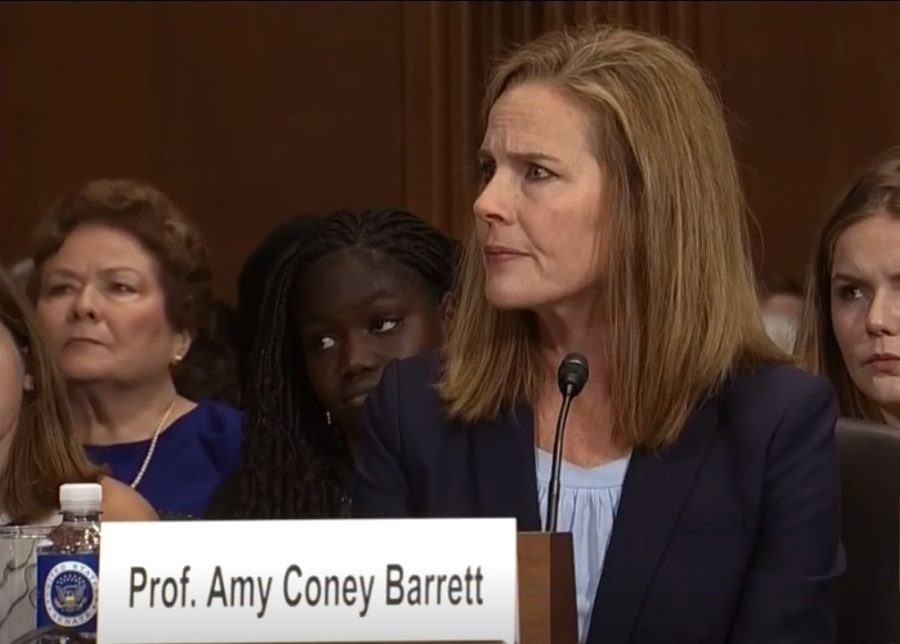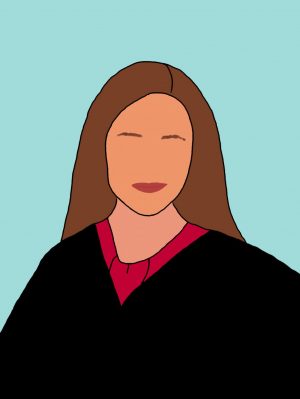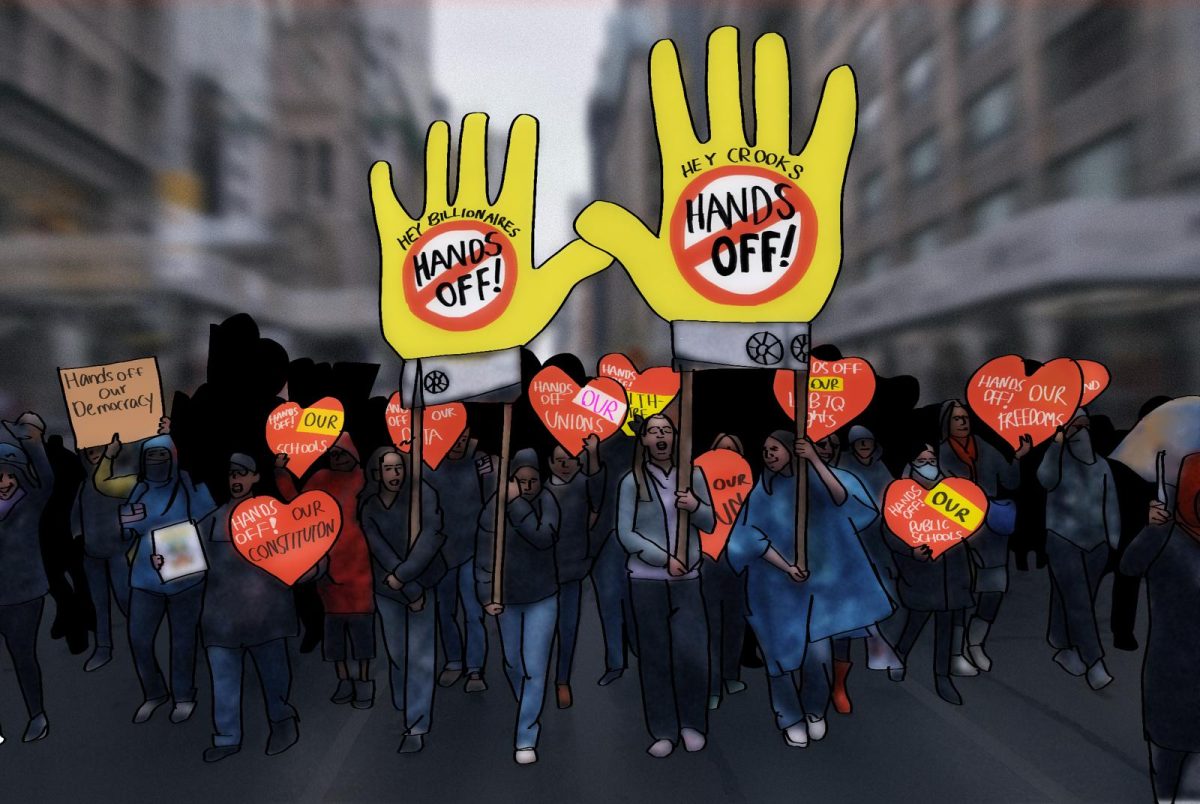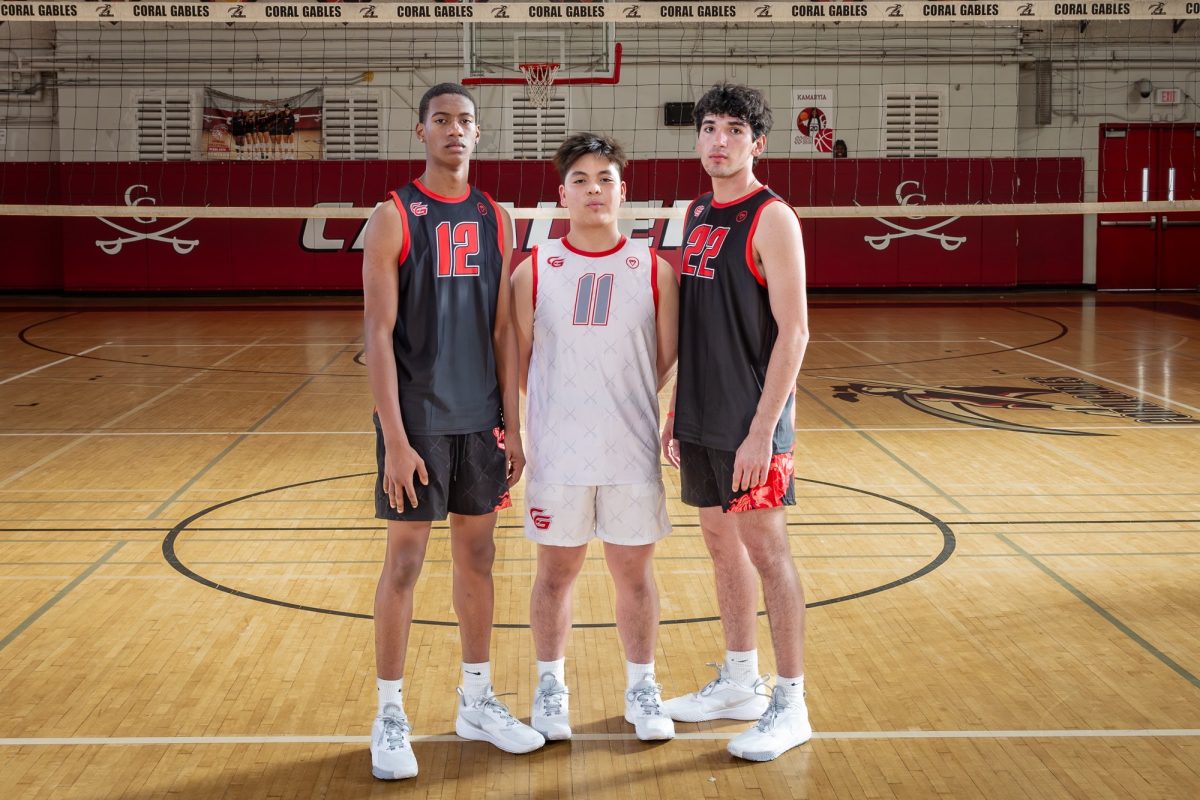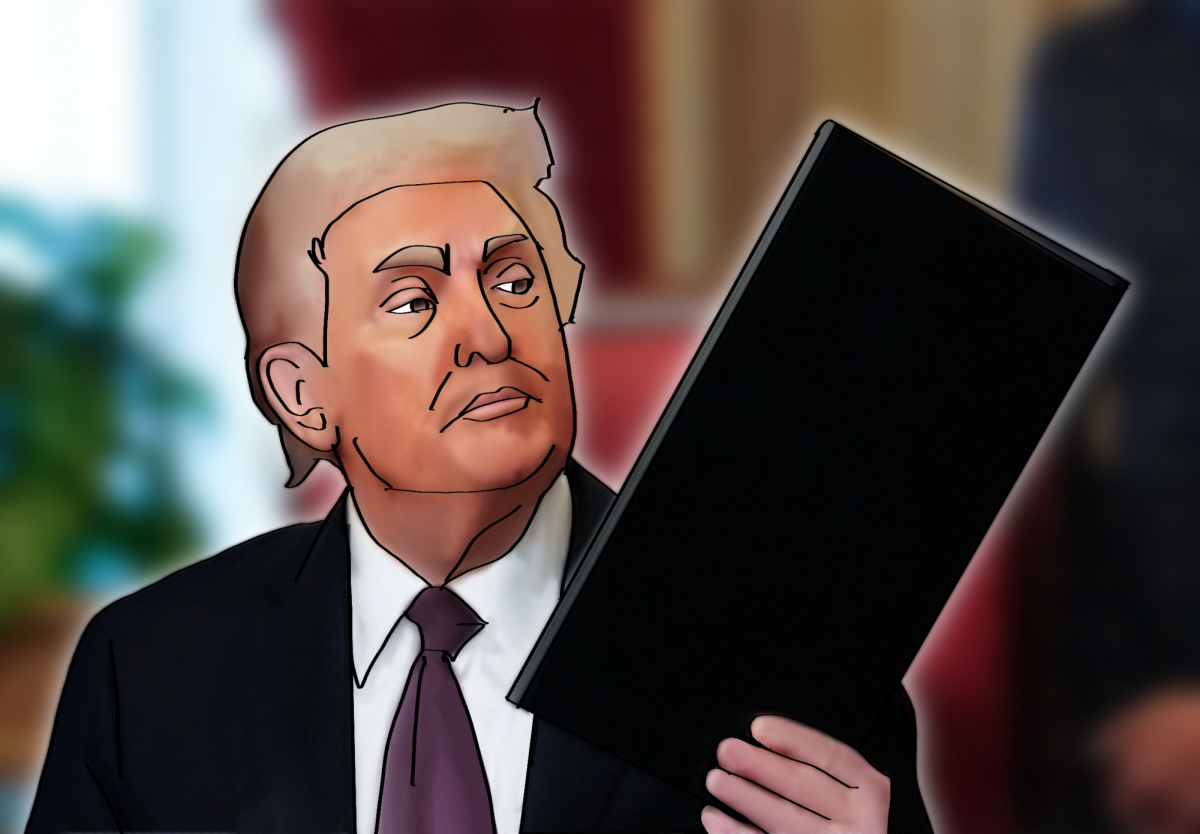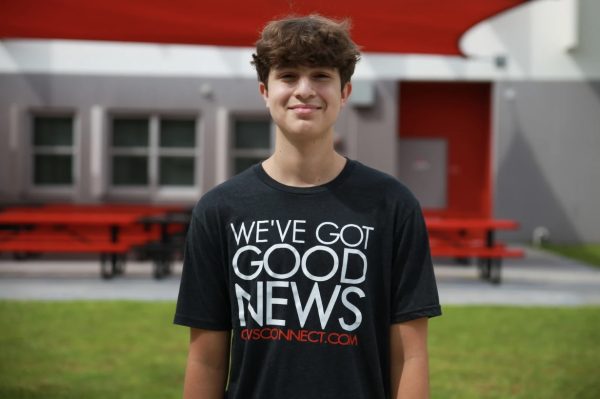Amy Coney Barrett: What We Didn’t Learn
w:Wikipedia:CSPAN, Public domain, via Wikimedia Commons
Amy Coney Barrett at her confirmation hearing taught the American people nothing about her stances on such pressing issues.
Oct 29, 2020
Lasting a total of 20 hours, Amy Coney Barrett underwent Senate hearings ahead of her potential appointment as the next Justice of the Supreme Court. Even after plenty of questions, often redundant, the senators and the American people learned absolutely…nothing! Known solely for being a Catholic conservative that currently serves on the seventh Circuit Court of Appeals, Democratic senators were awaiting this hearing to finally get to know Barrett; especially her stance on topics like health care, abortion rights and future election issues. Amy Coney Barrett continuously used the “Ginsburg rule,” claiming that it is not right for her to share her opinion on hypothetical cases or on her views in general. Barrett did not agree with her past writings and sayings, nor did she openly defend her past opinions, thus it seems absurd to think she qualifies to be an actual justice.
Like everything these days, even the Supreme Court is tied to the Coronavirus pandemic. The Court is set to hear a case entailing the Affordable Care Act, also known as Obamacare. President Trump has repeatedly said that he would appoint judges to overturn the Affordable Care Act, claiming that part of Obamacare is illegal. He claims that he has a much better plan in the making, yet no one has ever heard about it. When asked about this, Barrett told senators that she was not there as a pawn to undo the ACA and that she would not share her opinions on the upcoming trial or on the act altogether. The public was only left with Barrett’s past statements which hint that she does not agree with the penalty aspect of Obamacare which is basically a tax that one must pay if they do not have insurance. This is concerning because conversation about whether or not Obamacare as a whole could stand alone if this crucial part of the act is repealed has been made and it seems that with a potential six-to-three conservataive Supreme Court bench, the ACA is severely at risk.
Now what would the repealing of Obamacare look like? Without Obamacare, private insurance companies once again can deny coverage or raise their prices to people with pre-existing conditions. That would mean that about 27% of non-senior adults could be denied health care coverage and be subject to America’s unrealistic costs for uninsured health care. Millions of people would be affected; a tragedy in the making, if this were to follow through.
“My expectations of what she would answer were low, considering her past rulings, but even then her avoidance was disappointing. These hearings are supposed to demonstrate what type of person would be sworn in if approved and we don’t even have an inkling of an idea of how she views herself,” junior Alia Gamez-Ibarra said.
Amy Coney Barrett is known for openly embracing her Catholic faith. Of course, no one should act maliciously towards someone who does this, however when her faith intertwines with political decisions that affect livelihoods—there is a problem. With that being said, the pro-life judge has made millions of pro-choice women fear the future of the Roe v. Wade precedent. In past legal writings, when discussing super-precedents, precedents that can no longer be overturned because they have become established law, Barrett did not consider Roe v. Wade as one of them. When asked about this, she avoided giving her opinion. Instead, she said that it is not a super-precedent because there are still cases that challenge the precedent, but “that does not mean that Roe should be overruled.” An answer like this still leaves room for Barrett to be open to the changing abortion law. Once again, the American public is left with much doubt on the nominee and the safety of abortion.
Another pressing issue that democrats were eager to question Barrett on was election results. President Donald Trump, on numerous occasions, has been unclear on whether or not he would accept the 2020 election results, claiming that there could be plenty of voter fraud because of mail-in ballots; a baseless argument. Trump has even gone as far as claiming that the election would be decided in the Supreme Court because the democrats are producing a “scam” with this election and is even encouraging his supporters to sign up as “Trump poll workers.” Preceding that statement, the president said that a 5-4 situation in the Supreme Court would not be a good one and one can only speculate that that is why he so eagerly wants to fill the empty seat with a conservative, making the court 6-3. With Barrett occupying that seat, it is possible that if such a case were to be presented to the Court, the decision could sway Trump’s way. When asked if she would recuse herself from such a case, she said that she would have to take a careful look at the case first before deciding to do so. On similar questions, Barrett said she hoped that the senators have more faith in her integrity than to think that she was nominated to serve as the President’s pawn. She also mentioned that she could not comment on her opinions over such a hypothetical situation occurring, but that even the Supreme Court cannot control whether or not a President respects whatever decision they come to.
“I believe that Amy Coney Barrett did a very lackluster and predictable performance during her confirmation hearing. It was obvious throughout that she had been ‘guaranteed’ the position. She kept dodging all the questions and kept politicization basic questions like her views on climate change and abortion. She obviously will not be working for the people on the issues that face our country, but rather for the republican party’s agenda,” junior Benjamin Pla said.
With all concerning issues, Amy Coney Barrett left plenty of room for Americans to expect the worst from her. There is no doubt that Barrett is underqualified for this position; it is her unknown opinions and intentions that are worrisome and, unfortunately, this hearing did not help to ease any of these worries.


